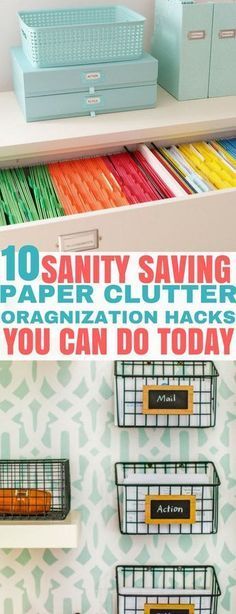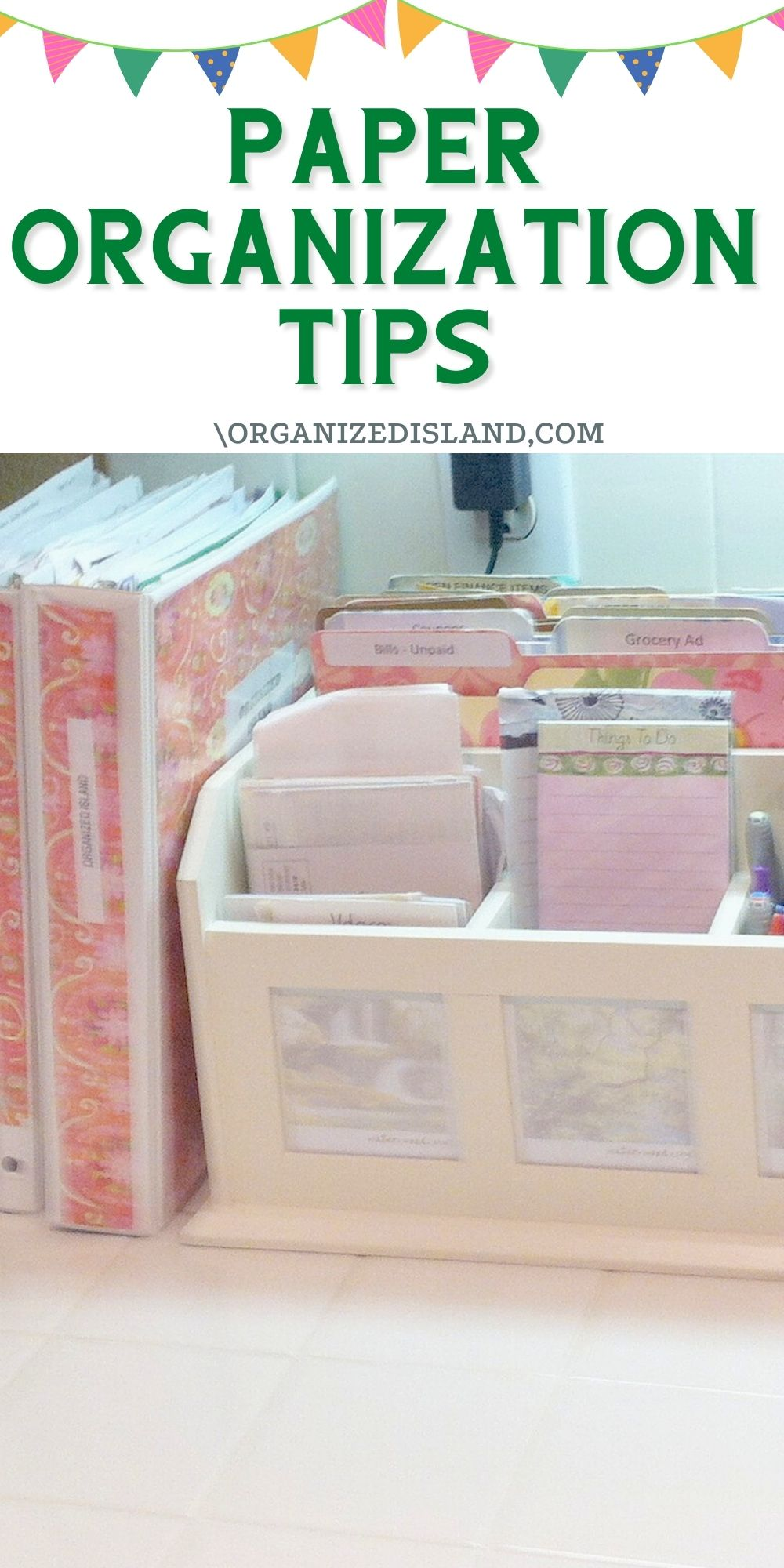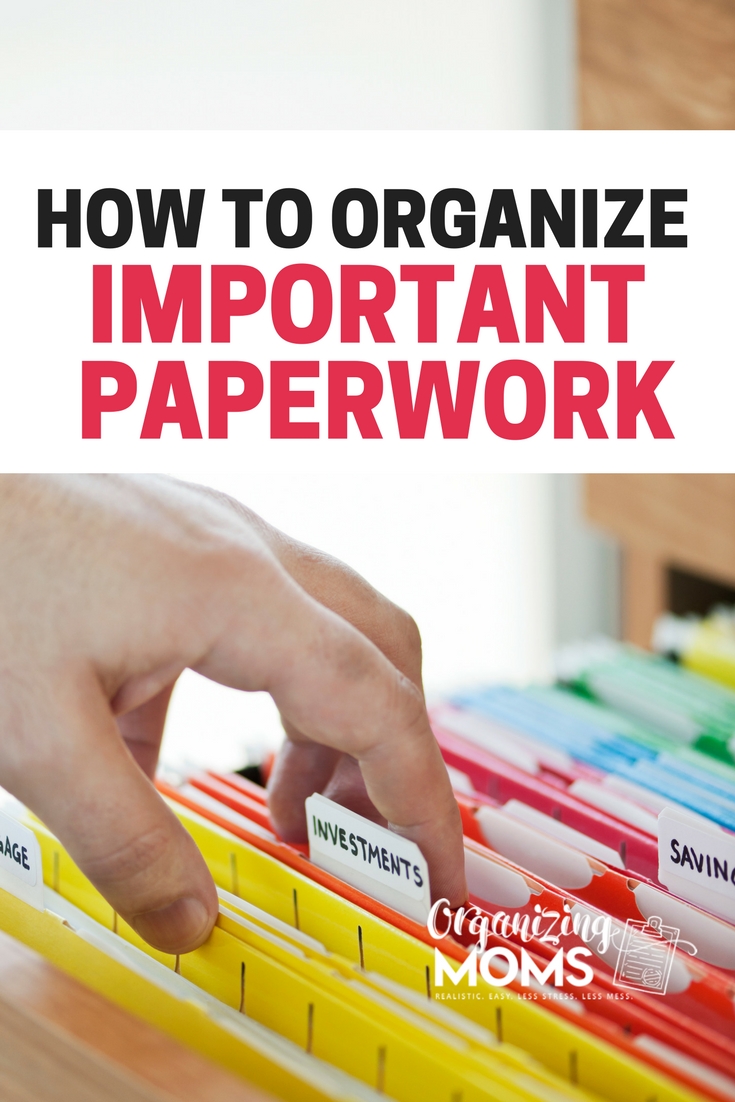7 Tips for Organizing Home Paperwork Efficiently

Managing home paperwork effectively can reduce stress and enhance productivity by ensuring that important documents are accessible and well-organized. Here are seven detailed tips that can help you keep your paper documents in order, saving you time and mental space:
Create a Dedicated Space

Designating a specific area for managing paperwork is the first step towards efficient organization. Whether it's a home office, a corner of your living room, or even a section of a kitchen shelf, having a paperwork station is crucial.
- Choose a Quiet Spot: Ensure the area is free from distractions to focus on organizing.
- Accessibility: Place it in an area you frequently use but isn't in the direct path of high traffic.
- Equip the Area: Include items like a desk, comfortable seating, good lighting, and storage options like file cabinets or boxes.

📂 Note: Having a dedicated space helps maintain your focus solely on the task at hand.
Sort and Categorize

Before you can organize your papers, you must know what you're dealing with. Begin by sorting your documents into categories:
- Financial (bank statements, bills, investment records, etc.)
- Medical (insurance, health records, prescriptions)
- Legal (wills, deeds, contracts)
- Education (diplomas, transcripts, school records)
- Household (warranties, manuals, receipts for big purchases)
- Personal (birth certificates, passports, personal documents)
Here's a table to guide you on how long to keep common documents:
| Document Type | Retention Period |
|---|---|
| Bank Statements | One Year |
| Tax Returns | 7 Years |
| Home Purchase/Sale Documents | Indefinitely |

Set Up a Filing System

Once categorized, the next step is to file your documents in a systematic manner. A well-designed filing system can make retrieval quick and effortless.
- Labeling: Use clear labels on file folders to identify content easily.
- Color-Coding: Assign colors to categories or individuals for quick visual sorting.
- Alphabetize: Arrange files in alphabetical order within each category for quick access.
- File Cabinets or Boxes: Choose filing cabinets for frequent use, and boxes for long-term storage.
Regular Maintenance

Your filing system will only work if you keep it up-to-date. Set a routine for:
- Weekly Review: Spend 15 minutes each week dealing with new incoming paper.
- Monthly Filing: Ensure new documents are filed and outdated ones are shredded or archived.
- Annual Cleanse: Go through all files once a year to remove unnecessary papers.
Go Digital Where Possible

Reducing physical paperwork by digitizing documents can save space and simplify retrieval:
- Scanning: Use a scanner or a high-quality mobile app to digitize important documents.
- Cloud Storage: Services like Google Drive or Dropbox can help store digital copies safely.
- Reduce Hardcopy Use: Opt for electronic billing or online statements when possible.
Establish a Shredding Routine

To maintain privacy and minimize clutter, regularly shred:
- Expired documents with personal information.
- Outdated medical or financial records.
- Old bank statements or credit card offers.
Keep Essential Documents at Hand

Ensure that documents you might need frequently or in emergencies are easily accessible:
- Create an Emergency Binder: This should include passports, medical information, insurance policies, etc.
- Keep Digital Copies: Store digital copies of essential documents in a secure online location.
The journey to a well-organized home paperwork system requires patience and diligence. By setting up a dedicated space, sorting and categorizing your documents, implementing a filing system, maintaining regular organization, going digital, shredding unneeded papers, and ensuring immediate access to vital records, you'll transform your approach to paperwork. This not only declutters your physical space but also clears your mind, allowing for better focus and productivity.
How often should I review and sort my paperwork?

+
Ideally, sort through your incoming documents weekly to manage them efficiently, perform a monthly filing session, and do a thorough annual review to remove or archive unnecessary documents.
What’s the best way to store digital documents securely?

+
Use secure cloud storage solutions like Google Drive, Dropbox, or iCloud with strong passwords and two-factor authentication for added security. Regularly backup your files to ensure no data loss.
What documents should I shred?

+
Shred any documents containing personal information like social security numbers, bank details, medical records, or credit card statements, especially when outdated or no longer needed.